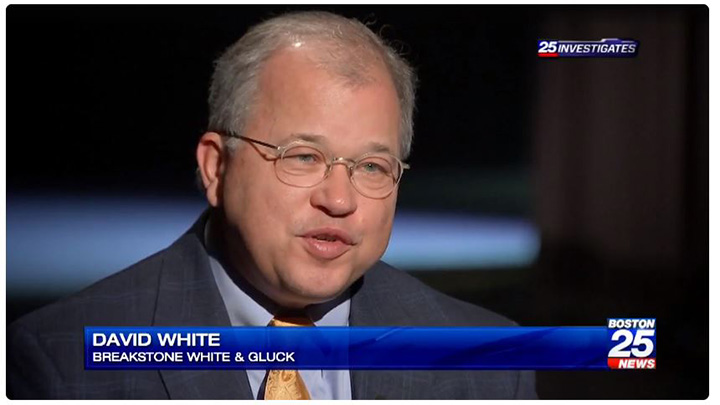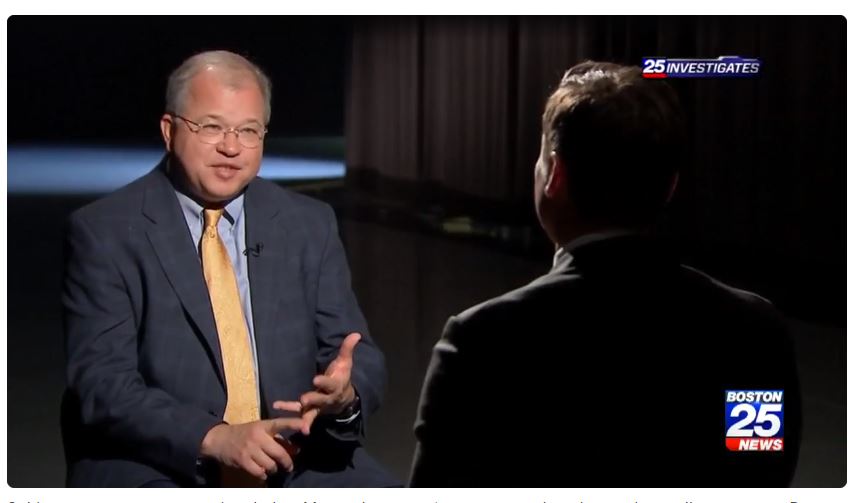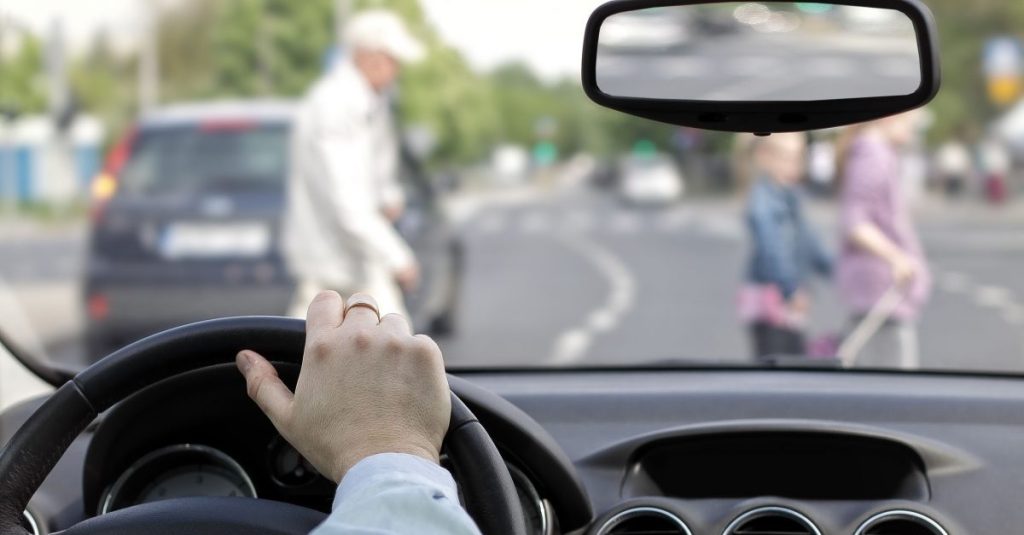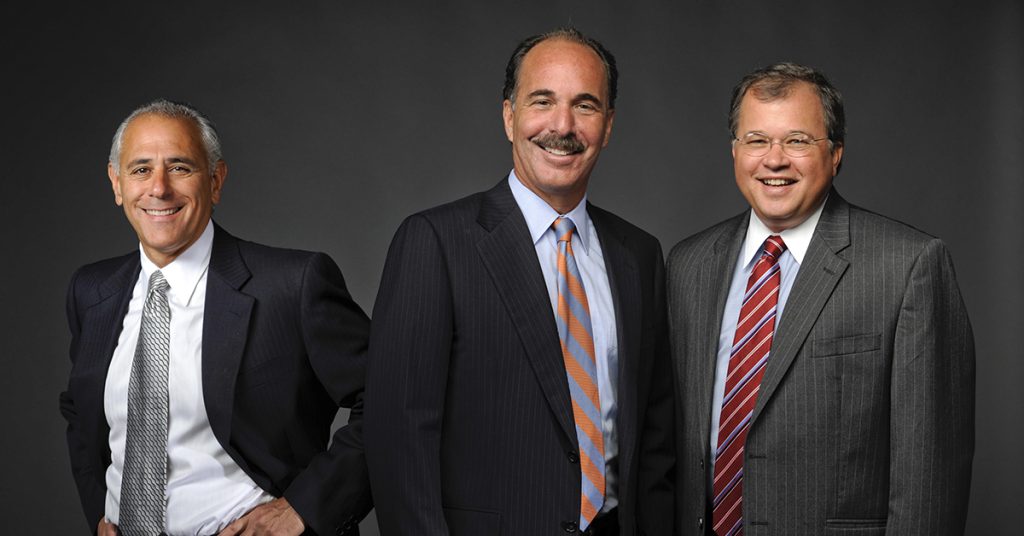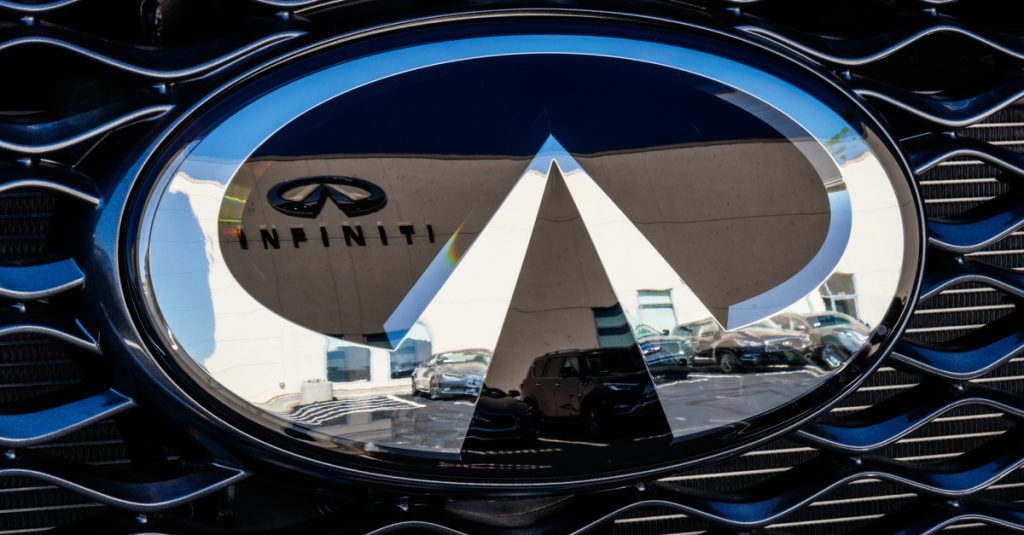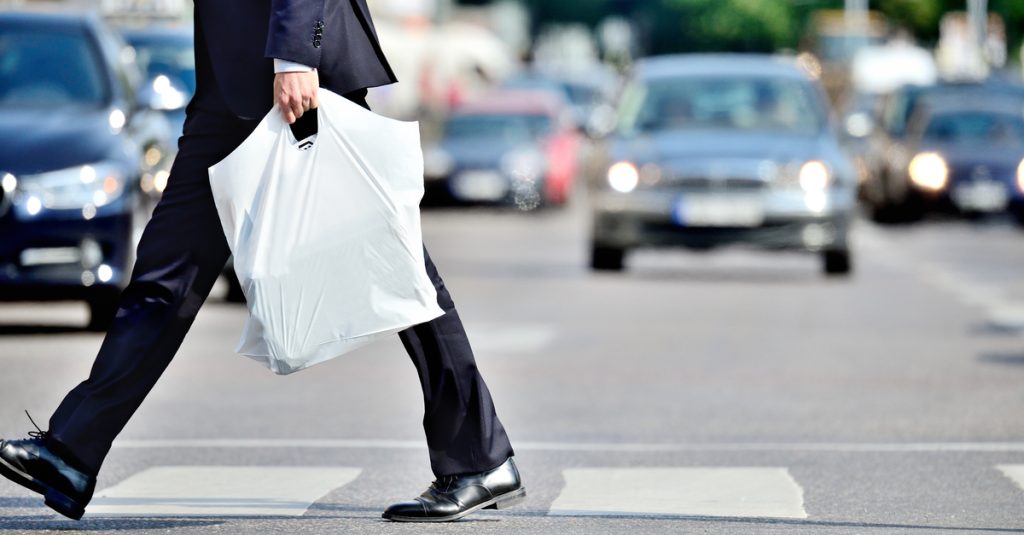Car Accidents
Attorney David W. White Interviewed by Boston 25 News on Liability in Pothole Accidents
Attorney David W. White was interviewed by Boston 25 News for a story which aired last night, “Mass. ‘Pothole’ Law Leaving Many With a Hole in Their Wallet.” The 25 Investigates team found cities and towns in Massachusetts are not compensating drivers for motor vehicle damage caused by winter potholes on municipal roads. Surprising many is that state law favors this position.
“You would think the law would be a little more supportive of people who suffer damages to their cars because we can’t maintain our roads,” Attorney White said in the interview. He later added, “The city can say you were 1% negligent yourself and that is an absolute defense to the case. And they’ll win, they will win.”
The investigative team found a handful of exceptions when cities actually paid drivers for pothole damage. But most drivers in Massachusetts had to foot their own bill, at an average cost of $306, according to AAA. The costs can be much higher for some drivers.
If a driver is successful in making a claim, there is a $5,000 maximum compensation.
About Breakstone, White & Gluck – Boston Car Accident Lawyers
The Boston personal injury lawyers at Breakstone, White & Gluck specialize in representing those injured by negligent and reckless driving in Massachusetts. If you have been injured in a car accident or a truck collision, seek immediate medical treatment and consult our attorneys to learn your legal rights. For a free legal consultation, call 800-379-1244 or 617-723-7676 or use our contact form.
Protecting Older Pedestrians From Car Accidents in Massachusetts
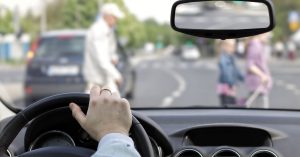
Massachusetts state officials are working to improve safety for older pedestrians.
When the snow falls, Massachusetts becomes more treacherous for everyone who walks. Older pedestrians are particularly vulnerable.
Massachusetts now has more than one million residents who are 65 or older – or roughly 15 percent of our population, according to a recent report, “Risk Factors for Older Pedestrian Injuries and Fatalities in MA.” The report was prepared for the Massachusetts Department of Transportation (MassDOT) in August 2019.
As Massachusetts residents live longer, many are more likely to be out walking for health or transportation. The state report identifies common risks to older pedestrians:
Winter Months. Researchers studied 4,472 pedestrian crashes across Massachusetts between 2006 and 2015, reporting crashes involving older pedestrians peak at 5 p.m. and during the month of December. November and January are also high risk months for older pedestrians, as they navigate darker conditions. When snow and ice is not cleared, sidewalks, parking lots and driveways can also contribute to unsafe conditions, as do drivers who fail to look for pedestrians and stop at crosswalks.
Causes of Older Pedestrian Crashes. Drivers who caused older pedestrian crashes were often inattentive, failed to yield the right of way or had trouble with visibility.
Where Older Pedestrians Were Hit. Older pedestrians were often hit at crosswalks at intersections, where they should have safety protections.
Where Older Pedestrians Crashes Occur. Researchers found Cambridge, Fall River, Lynn and New Bedford among the the top communities for highest number of older pedestrian crashes and the highest per capita.
Changing Face of Pedestrian Accidents. Crash rates involving “younger old” pedestrians – those between age 55 and 74 – increased. Crash rates among older pedestrians (75 and older) remained consistent.
Community Health. Communities with higher rates of disability reported greater rates of older pedestrian crashes. These included the urban neighborhoods of Boston, Lawrence and Chelsea.
Community Amenities. Communities with a high number of cultural amenities within walking distance – such as libraries and fitness centers – had higher crash rates among older pedestrians.
Not Just Older Pedestrians in Massachusetts. This state report comes as pedestrian fatalities rise across the country. Last March, the Governors Highway Safety Association announced a 35 percent increase in pedestrian deaths from 10 years ago (Streets Blog). This was the highest number of pedestrian fatalities since 1990.
Nationally, research shows 48 percent of pedestrian fatalities involved victims 50 and older, according to the Massachusetts study. Meanwhile, Massachusetts reports half of all pedestrian fatalities involve a pedestrian 55 and older.
Report Recommendations
The state report recommends work to protect older pedestrians be tied in with the Governor’s Council to Address Aging in Massachusetts, which was established in 2017. Among other advisories, the state report also sought infrastructure improvements in certain communities and creation of a winter public awareness campaign aimed at protecting older pedestrians.
Our Safety Tips for Pedestrians During Winter
Wear Neon. Pedestrians can make themselves more visible to traffic by wearing neon colors and neon reflective tape. Consider buying neon jackets, vests, hats and gloves to stand out.
Our Safety Tips for Drivers During Winter
Stop at Crosswalks. Make eye contact with pedestrians at crosswalks. Stop as they cross.
Other Drivers. Stop if you are approaching a driver who has stopped for a pedestrian at a crosswalk. Allow the pedestrian to completely cross the street.
Avoid Night Driving At Times. If you are overtired or are having trouble seeing at night, don’t drive. Make an appointment to have a doctor check your vision. Wear your eyeglasses as prescribed when you drive.
Limit Alcohol Consumption. Never drive while intoxicated. Use the designated driver system.
Free Legal Consultation – Boston Personal Injury Lawyers
With over 100 years combined experience, Breakstone, White & Gluck has been consistently recognized for our results in personal injury cases in Massachusetts, including by Top 100 New England Super Lawyers and U.S. News Best Law Firms. If you or a loved one has been injured by someone’s negligence, it is in your best interests to consult an experienced personal injury lawyer. For a free legal consultation, contact our attorneys at 800-379-1244 or 617-723-7676 or use our contact form.
Massachusetts Passes Hands-Free Driving Law
 Massachusetts has finally approved distracted driving legislation. Gov. Charlie Baker signed on Monday, establishing New England as a hands-free driving zone.
Massachusetts has finally approved distracted driving legislation. Gov. Charlie Baker signed on Monday, establishing New England as a hands-free driving zone.
According to The Boston Globe, the new distracted driving law will take effect on Feb. 23, 2020. Massachusetts police officers will issue warnings until the end of March, then citations will begin. This transition period is meant to help drivers get used to the new law. Become familiar with Bluetooth and other “hands-free” technologies now, and if you plan to use an electronic device for navigation, purchase a mount for your windshield or dashboard.
Until now, most drivers have been able to pick up cell phones to talk in Boston and across Massachusetts. However, under the 2010 texting while driving ban, drivers cannot text, read emails or use social media. This has helped deter some drivers, but overall, not enough without a handheld cell phone ban.
Come next year, Massachusetts drivers can only use cell phones under limited circumstances. Drivers can use electronic devices on “hands-free” mode (though they do get a single-swipe to activate or de-activate the “hands-free” mode). As we mentioned, they must use Bluetooth or a similar “hands-free” technology and mount navigation devices.
Police officers can stop drivers as a primary offense, which is more leeway than they have in enforcing seat belt use. Officers will be required to collect data – including age, race and gender – when they issue a warning or citation. The state will use this data to monitor potential racial profiling by police departments.
The new Massachusetts distracted driving law brings notable consequences. These alone are good financial motivators for putting down your cell phone.
Under the new law, drivers will be fined $100 for the first offense, $250 for the second offense and $500 for the third offense (and any subsequent offense). Second-offenders have to participate in a driver safety course. Drivers can also face an insurance surcharge.
Safety is the most important point. Cell phone use is responsible for more than 1 of 4 car crashes, according to the National Safety Council. Distracted drivers killed 3,166 people across the U.S. in 2017, according to the National Highway Traffic Safety Administration. These are hard numbers to hear.
Massachusetts now joins every other New England state in improving hands-free cell phone legislation. Maine was the last state to approve legislation this past summer. According to the National Conference of State Legislature, 20 states already have laws which ban handheld cell phone use, so Massachusetts could be the 21st.
Read the law: AN ACT REQUIRING THE HANDS-FREE USE OF MOBILE TELEPHONES WHILE DRIVING, 2019 Mass. Acts 122
Boston Car Accident Lawyers – About Breakstone, White & Gluck
At Breakstone, White & Gluck, our Boston car accident lawyers have over 100 years combined experience and provide expert investigation into car crashes involving negligent cell phone use. We represent clients who have been injured by negligent driving across Massachusetts, including in Boston, Cambridge, Somerville, Quincy and Braintree. South of Boston, our attorneys have represented numerous clients, including those injured in Brockton, Plymouth and Cape Cod, as well as in Framingham, Worcester and north of Boston, Salem, Peabody, Newburyport and Saugus.
If you have been injured, learn your legal rights. Call 800-379-1244 or 617-723-7676 or use our contact form.
Breakstone, White & Gluck Recognized by Super Lawyers
It is our pleasure to announce that Super Lawyers has recognized Breakstone, White & Gluck in its 2019 rankings. This was the 16th year our attorneys have been recognized.
Marc L. Breakstone has been selected to the Top 100 New England Super Lawyers, Top 100 Massachusetts Super Lawyers and the 2019 Massachusetts Super Lawyers list, recognized as a top-rated medical malpractice attorney in Boston.
David W. White has been selected to the 2019 Massachusetts Super Lawyers list, recognized as a top-rated personal injury attorney in Boston. Attorney White has previously been selected to the Top 100 Massachusetts Super Lawers seven times and to the Top 100 New England Super Lawyers three times.
Ronald E. Gluck has been selected to the 2019 Massachusetts Super Lawyers list, recognized as a top-rated personal injury attorney in Boston.
Super Lawyers is a rating service which highlights outstanding lawyers from more than 70 practice areas. Selections are made using a multiphase process, including a statewide survey of lawyers, independent research and evaluation and peer reviews from within a practice area.
Super Lawyers recognizes the top 5 percent of lawyers from that process. Another 2.5 percent of attorneys are selected to the Rising Stars list, which showcases talented attorneys under age 40.
About Breakstone, White & Gluck
Over 100 Years Combined Experience in Personal Injury Plaintiff Representation
Breakstone, White & Gluck is respected across Massachusetts for our commitment to our clients and our results. We have been representing plaintiffs in personal injury and medical malpractice cases as a firm since 1992. Each of our partners has over 30 years of experience.
Our firm is experienced in handling all types of personal injury cases, including those involving catastrophic accidents, wrongful death, motor vehicle accidents, product liability, premises liability, construction accidents, explosions, spinal cord injuries, head injuries and traumatic brain injuries. Our attorneys are regularly interviewed in the local media for their expertise in these specialties and Massachusetts insurance laws.
We have always been active in the Massachusetts legal community and are dedicated to sharing our knowledge with other attorneys through continuing legal education and professional organizations. Attorney Marc L. Breakstone and Attorney Ronald E. Gluck serve on the Board of Trustees for the Massachusetts Academy of Trial Attorneys (MATA), while Attorney David W. White is a past president of the Massachusetts Bar Association. We are also committed to giving back and working to prevent injuries. Through our Project KidSafe campaign, our attorneys have given away more than 25,000 free bicycle helmets to children across the state of Massachusetts.
We invite you to visit our website to read about our work and watch testimonials from past clients.
Free Legal Consultation – Breakstone, White & Gluck
If you have been injured, you should speak to an experienced Boston personal injury lawyer and learn your legal rights for seeking financial compensation. For a free consultation, contact us at 800-379-1244 or 617-723-7676. You can also use our contact form.
In the Battle for Safety, Cambridge Lowers Speed Limits to 20 MPH

Drivers, double check your speed next time you visit Cambridge. In mid-November, the city plans a slow down to 20 mph on most city-owned streets. The city says, when in doubt, go 20 mph.
The City of Cambridge announced the new 20 mph speed limit this week, a decision made in response to residents’ concerns about speeding vehicles and the risk for pedestrian accidents and injuries to cyclists. Cambridge follows Boston and Somerville in pursuing 20 mph speeds on certain city streets. Each city has a VisionZero safety campaign and is working to eliminate traffic fatalities.
Cambridge first lowered speed limits from 30 to 25 mph on most city-owned streets in December 2016. The Massachusetts Legislature granted cities and towns this authority earlier that year with passage of the Municipal Modernization Law. Specifically, communities were given the authority to lower speeds from 30 to 25 mph in locally-owned thickly settled areas.
In response, dozens of communities adopted 25 mph speed limits to reduce the risk of accidents. Few have pursued 20 mph – yet.
But according to the City of Cambridge’s announcement, the law allows communities to establish 20 mph “safety zones” in the interest of public safety. Cambridge will be installing 660 new “safety zone” signs.
The City of Somerville has also taken advantage of this provision of the law. Last we knew, the City of Boston – which was the first to pursue 25 mph, then 20 mph speeds – was still working on the issue. Here is our last update on Massachusetts speed limits (though please note: there may have been additional action since then).
Check a street: Not every street in Cambridge will be impacted. Larger streets like Brattle Street and Cambridge Street will stick with current speeds. Roads under state management – such as Memorial Drive – will not change. You can check out the map here: www.cambridgema.gov/20mph.
It’s worth noting Cambridge’s squares – including Harvard Square, Lechmere Square and Porter Square – won’t see any change. The city lowered speeds to 20 mph back in early 2018.
Cambridge’s Influence on Traffic Safety
Cambridge has been ambitious in making traffic safety improvements. In addition to lowering speeds, the city announced a new City Safety Ordinance earlier this year. The city made the commitment to add permanent separated bike lanes whenever it reconstructs roads identified in the Cambridge Bicycle Plan. With full build out, this would give the city an impressive 20 miles of protected bike lanes. Cambridge Bicycle Safety, a local group, said this could reduce 40 percent of Cambridge bicycle accidents, the one which occur outside intersections.
The city, while committed, does concede there may be cases when these bike lanes aren’t possible due to road conditions.
The bottom line is Cambridge has such a strong influence on transportation in the Boston region, just by virtue of its geography. It borders Somerville, Boston, Arlington, Belmont and Watertown. And because it’s one of the largest cities in Massachusetts, its work to promote safety will be watched across the state and nationally.
Free Legal Consultation – Boston Pedestrian Car Accident Lawyers
Breakstone, White & Gluck has represented accident victims in Boston, Cambridge and across Massachusetts since 1992. Our attorneys are dedicated to our clients and our results. We provide the prompt and thorough investigation required after pedestrian car accidents and bicycle crashes.
If you have been injured by a driver, we offer a free legal consultation to advise you on whether you may pursue a financial claim for your injuries and other losses. Consult one of our personal injury attorneys today at 800-379-1244 or 617-723-7676. You can also use our contact form.
National Teen Driver Safety Week is October 20-26, 2019
 National Teen Driver Safety Week will begin Sunday. While your teen may learn about this topic at school, parents can also become involved and learn alongside teens. Parents influence their children in many ways. If you can influence the discussion on safe driving, you could save a life.
National Teen Driver Safety Week will begin Sunday. While your teen may learn about this topic at school, parents can also become involved and learn alongside teens. Parents influence their children in many ways. If you can influence the discussion on safe driving, you could save a life.
It’s a well-known and tragic fact: motor vehicle crashes are the leading cause of death for teens. In 2017 alone, 2,526 teens were killed in crashes, according to the to the National Highway Traffic Safety Administration (NHTSA).
This is the 12th year that National Teen Driver Safety Week has been observed. Two Pennsylvania lawmakers, Congressman Charlie Dent (R-PA) and Senator Bob Casey (D-PA), introduced the legislation establishing the annual event in October 2007.
National Teen Driver Safety Week highlights many topics, including graduated licensing laws, distracted driving, speeding and obeying fundamental traffic laws. It also provides resources on helping teens through their first few weeks as a licensed driver, along with handling stressful and emotional driving situations, including car accidents. Visit teendriversource.org to learn more.
State Graduated Driver Licensing (GDL) Laws
We are going to write about graduating licensing laws because these are the foundation for teaching teens to drive safely. All 50 states have a law in place, but these vary in restrictions, according to the Insurance Institute for Highway Safety (IIHS). Florida was the first state to adopt a graduated licensing law for teens in 1996. Massachusetts lawmakers approved a Junior Operator Law in 2007, which increased driving training requirements and penalties.
The law places restrictions on teens with licenses between the ages of 16 ½ and 18. First, as you may know if you are a parent, teens have to obtain a learner’s permit. Next comes 30 hours of classroom training on Massachusetts motor vehicle laws and safe driving techniques. Beyond the classroom, there is another 18 hours of instruction, including 12 hours behind-the-wheel and 6 hours of observation.
Here are some of the restrictions under the Massachusetts Junior Operator Law:
Passenger Restriction. Teens are not allowed to drive with other passengers under age 18 until they have been licensed for 6 months. There is an exception for siblings.
Night Driving Restriction. Another restriction is teens cannot drive between the hours of 12:30 a.m. and 5 a.m.
Cell Phone Use Restriction. Teen drivers cannot use cell phones or mobile electronic devices. Texting while driving is also prohibited, for all other drivers in Massachusetts.
Teens can expect to receive a significant license suspension if they violate these restrictions. For instance, there is a 60-day license suspension if your teen is caught driving between 12:30 and 5 a.m. There is a 90-day suspension for a first offense of speeding. For the second offense, there is a full-year suspension.
Massachusetts’ Junior Operator Law violations
Visit teendriversource.org for more on National Teen Driver Safety Week.
Fewer Teen Drivers
In recent years, Massachusetts has actually reported a reduction in teen deaths and non-fatal injuries in drivers age 16 and 17. This is a positive development, except when you look closer. There has actually been an increase in hospital rates for crash injuries in drivers between 18 and 20 years old. The state and a Boston Globe analysis attribute this to the fact that many teens are now waiting to get their license until age 18. By doing so, teens can skip driver’s education, which became more expensive and time-consuming when the Junior Operator Law took effect.
If your teen delayed getting their license, make sure they take time to learn the fundamentals and get the practice they need. Driver’s education is a critical component to developing a safe driver.
About Breakstone, White & Gluck – Experienced Boston Car Accident Lawyers
The Boston personal injury lawyers at Breakstone, White & Gluck specialize in representing those injured in motor vehicle crashes in Massachusetts. With over 100 years combined experience, our car accident lawyers have the expertise to guide our clients to the best financial results in case involving motor vehicle accidents and truck crashes.
For a free legal consultation, contact us at 800-379-1244 or 617-723-7676. You can also use our contact form.
Massachusetts Parents: Reminders About Child Passenger Safety Seats

When properly used, child passenger safety seats can reduce the risk of fatal accidents by 71 percent for infants and by 54 for toddlers, according to the NHTSA.
Buying a car seat takes careful research. But most parents agree: the real hardship comes after you try to buckle your child up safely. While car seats are essential, they are anything but easy to use. And if you use them incorrectly, your child is left without proper protection.
All 50 states have laws requiring car seats for children. In Massachusetts, parents must secure their children in a federally-approved seat until they reach age 8 or over 57 inches tall. This is critical because car accidents are a leading cause of death for children ages 1 to 13, according to the National Highway Traffic Safety Administration (NHTSA). For every 32 seconds in 2017, a child under 13 was involved in a passenger vehicle crash.
We are writing about car seats because the NHTSA and other organizations recently observed Child Passenger Safety Week nationwide from Sept. 15 to Sept. 21. If you missed it, we are sharing a few resources and tips. If you are a parent, don’t lose hope. There are a lot of resources out there. The best place to start is with your local police department. Many police departments offer free car seat inspections year-round by appointment.
Selecting a Safe Car Seat
The NHTSA offers a free online resource to help parents select the right car seat. Parents should follow the manufacturer’s recommendations on age, weight and height recommendations for selecting car seats. NHTSA Find & Compare Car Seats
Types of Car Seats
Rear-facing seats. The NHTSA encourages children to use rear-facing seats up until age 3 or they reach the top of the manufacturer’s height and weight requirements. Always check your product manual for this information.
For the first 8 or 9 months, children should ride in rear-facing infant seats. The NHTSA then advises a move to a convertible or all-in-one seat, and that parents keep children rear-facing as long as they can.
As we said, it’s important to read your product manual and the manufacturer’s instructions. In past years, the recommendation was to keep your child in a rear-facing car seat until age 2. But new research has led to a new recommendation. In 2018, the American Academy of Pediatrics announced children can remain in rear-facing seats until they reach 40 pounds or more. While every child is different, this often comes after a child’s second birthday.
Forward-facing seats. Next, children will move into a harness and tether seat. This type of seat limits their forward movement if the car crashes. There are three types of forward-facing seats: convertible, combination and all-in-one.
Booster seats. These give children a boost so they can sit taller and safely use seat belts.
Without booster seats, seat belts can seriously injure children, causing abdominal bruising and injuries. Compared to seat belt use alone, booster seats are shown to reduce the risk for injury by 45 percent in children ages 4 to 8, according to the Centers for Disease Control and Prevention (CDC).
As with the other car seats, there are several types of booster seats: booster seats with high backs, backless booster seats, combination seats and all-in-on-seats.
In 2008, Gov. Deval Patrick signed the Massachusetts Child Passenger Safety Law, adding the booster seat requirement until children reach age 8 or 57 inches tall. At that point, children can move to regular seat belts in the back seat.
Making this transition earlier can leave your child without proper protection and vulnerable to injury. Unfortunately, parents are making this mistake. About 26 percent of children were moved to seat belts too early, according to the NHTSA.
Car Seat Registration and Expiration
Make sure to register your car seat with the manufacturer so the company can contact you if there is a recall. Car seats are frequently recalled and these can be widespread recalls, including mislabeling or defective parts. In 2014, Graco recalled 3.7 million car seats due to defective buckles, disrupting families across the country.
Remember, car seats have expiration dates. Look for the sticker at the bottom. The expiration date should be about six years from the manufacture date.
Never use a car seat beyond the expiration date. While the seat may appear to be in good condition, the plastic and other parts wear from daily use and exposure to sun, making the product less effective in protecting your child.
About Breakstone, White & Gluck – Boston Personal Injury Attorneys
Breakstone, White & Gluck has over 100 years combined experience representing those who have been injured and killed by the negligence and wrongdoing of others, including by car accidents. In 2013, we launched our Project KidSafe campaign to offer education and safety resources for children and families in Massachusetts. Learn more about Our Attorneys and our Project KidSafe campaign.
If you have been injured by someone else’s negligence, learn your legal rights from one of our attorneys. For a free legal consultation, call 800-379-1244 or 617-723-7676. You can also use our contact form.
Ford, GM and Nissan Make Auto Recall Headlines in 2019
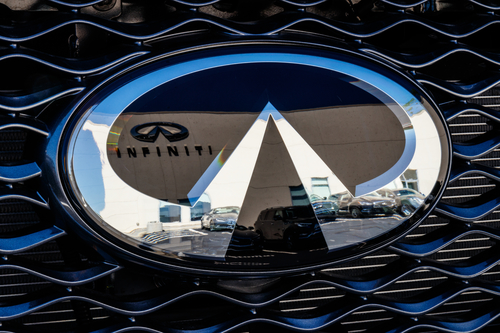
Nissan has recalled 1.23 million vehicles because the backup camera displays are not working properly (Sept. 2019)
It is always wise to stay informed about your car and to regularly check for auto recalls. This was the lesson of the past decade and is sound advice again in 2019, as General Motors, Ford and Nissan have announced new safety defects.
General Motors Recalls
General Motors (GM) has issued several recalls during 2019, most notable 3.5 million SUVs and trucks with faulty brakes. This recall was announced in mid-September and was associated with 13 related injuries and 113 car crashes, according to Consumer Reports. This was a known problem in some GM models, including the Chevrolet Silverado, GMC Sierra pickup trucks and the Chevrolet Tahoe.
The National Highway Traffic Safety Administration (NHTSA) has been investigating since November 2018, when it received complaints. General Motors has been repairing vehicles since December 2018. A Canadian recall was issued in June.
The GM vehicles have a defect with a powered brake-assist system, potentially impacting the amount of pressure required to stop. There are several warning signs: drivers may experience a vibrating brake pedal, hear a ticking noise or see a message reading “Service Brake Assist” on the dashboard. GM dealers can re-program the braking software at no charge.
Nissan Recalls
Don’t trust the backup camera display if you are driving a Nissan. The automaker has just recalled 1.23 million vehicles – including many of its most popular models – because the backup camera displays are not properly returning to their default settings. This recall involves 2018 and 2019 models of the Nissan Altima, Nissan Murano, Nissan Pathfinder, the Infiniti and numerous other models. No injuries were reported. Read more.
Ford Recalls
Ford has also made negative headlines. Back in January, the automaker called back 953,000 vehicles worldwide as part of the ongoing Takata airbag recall. More than 782,000 vehicles were in the U.S. market. The recall covers 2010 through 2014 models, including the Ford Edge, Ford Ranger, Ford Fusion, Lincoln MKZ, Mercury Milan and the Ford Mustang.
Automakers continue to recall the Takata airbags, which have caused dozens of deaths and hundreds of serious injuries. The deadly recall has now touched 41.6 million vehicles, according to the NHTSA. While these recalls were first announced years ago, the NHTSA says the repairs must happen in phases over time. Priority has been given to the oldest vehicles in Florida and other warm weather states.
In August, more bad news and another recall. Ford announced that more than 550,000 more trucks and SUVs in North America had glitches – the backseats were not providing proper restraints. Among the vehicles: certain 2018 through 2020 models, including F-150 pickups, Super Duty trucks, Explorer SUVs and Expedition SUVs.
Toyota Recalls
In August, Toyota recalled 135,000 Corollas and Matrix hatchback vehicles from model years 2005 to 2008, according to Cars.com. These vehicles had airbags which needed replacement due to the Takata recalls, but these repairs were previously made and were not related to the latest recall.
Check Your Vehicle for Safety Recalls
You can visit the NHTSA website to check if your vehicle has been subject to a recall.
Boston Product Liability Lawyers – Free Legal Consultation
With more than 100 years combined experience, Breakstone, White & Gluck is known as one of the best personal injury law firms in Massachusetts. We have extensive experience handing cases which involve car accidents, truck crashes and pedestrian injuries in Boston and other communities. In some cases, a defective part may contribute to a car crash and injuries. Our attorneys have investigated and aggressively represented clients in these cases, ultimately obtaining the financial compensation they deserve.
If you have been injured in a car accident in Massachusetts, learn your legal rights. For a free legal consultation, contact us at 800-379-1244 or 617-723-7676 or use our contact form.
In Massachusetts, Debate Continues on Ignition Interlock Devices for First-Time Drunk Drivers
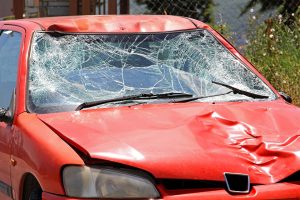
The Massachusetts Legislature is being asked to reconsider a ignition interlock law for first-time OUI offenders.
Many of us recall when Massachusetts passed Melanie’s Law to increase penalties for drunk drivers. This was a landmark bill aimed at preventing drunk driving injuries and deaths.
Yet today, when it comes to drunk driving laws, Massachusetts now falls behind some expectations. While ignition interlock devices are mandatory for repeat drunk drivers, they are not required for first-time offenders.
Each year, Mothers Against Drunk Driving (MADD) asks Massachusetts lawmakers to extend the requirement to first-time offenders. According to the advocacy organization, 119 people are killed each year in Massachusetts drunk driving crashes and that drunk driving fatalities account for 31 percent of all drunk driving deaths.
In January 2019, Gov. Charlie Baker and Lt. Karyn Polito included the measure in the administration’s road safety bill. According to the State House News Service, a hearing was held on the bill, but it remains to be seen if we will hear more this year. There was more than one bill filed this year, but no update since the summer.
Massachusetts Drunk Driving Laws
Massachusetts lawmakers passed Melanie’s Law in 2005 and this took effect in 2006. Named for the 13-year-old victim of a drunk driver, Melanie’s Law increased penalties for those charged with operating a motor vehicle under the influence of alcohol or controlled substances. It also increased jail time in drunk driving accidents resulting in serious injury and death.
Melanie’s Law was the state’s introduction to the ignition interlock device, a small unit designed to detect alcohol on one’s breath. The device is electronically connected to the vehicle’s ignition and won’t allow drivers to operate if they are intoxicated. Over the past 13 years, ignition interlock devices have been installed for more than 17,000 drivers, according to Mass.gov.
According to MADD, ignition interlock devices stopped drivers 31,845 times in Massachusetts between December 1, 2006 and December 1, 2016.
State by State: Ignition Interlock Laws
The national debate over ignition interlock devices dramatically changed in 2013. This is when the National Highway Traffic Safety Administration (NHTSA) released new model guidelines encouraging states to pass requirements mandating use of ignition interlock devices for first-time offenders. States were also urged to establish a minimum period of time for use.
According to the National Conference for State Legislatures, 28 states and the District of Columbia now have mandates for all offenders. These include New Hampshire, Vermont and Connecticut. The ignition interlock law is slightly different in Maine. Rather than mandating use, first-time offenders are eligible to get their license back earlier (after 30 days) if they keep the ignition interlock installed for the remainder of their sentence.
Like Massachusetts, Rhode Island requires use of ignition interlock devices for repeat offenders, though there are differences in the state laws.
Federal Law: Ignition Interlock
MADD isn’t the only organization pursuing ignition interlock devices. The Chicago Tribune reported a former NHTSA administrator was before Congress this summer, urging members to pass a law mandating automakers build vehicles with passive ignition interlock devices. According to the official, the technology has been available since 2006 and wider use could save up to 7,000 lives each year.
Breakstone, White & Gluck – Boston Car Accident Attorneys
At Breakstone, White & Gluck, our Boston car accident lawyers specialize in investigating all types of car accidents, including those caused by drunk drivers. With more than 100 years combined experience, Breakstone, White & Gluck has represented numerous drivers who have been struck by intoxicated drivers. In drunk driving claims, the injured person may be entitled to compensation from the at-fault driver’s auto insurance policy. Additional compensation may also be available through other sources, including restaurants, bars and other establishments.
Learn your legal rights. For a free legal consultation, contact us at 800-379-1244 or 617-723-7676 or use our contact form.
Traffic Signals Under Scrutiny After Serious Pedestrian Crashes in Boston and Somerville
Pedestrian crashes have made devastating headlines in Boston and Somerville this past week. In Boston, a van struck two pedestrians at a feared intersection last Wednesday (Sept. 11th). One victim, a young woman, later died from her injuries. The next day in Somerville, a garbage truck critically injured a woman on the McGrath Highway.
have made devastating headlines in Boston and Somerville this past week. In Boston, a van struck two pedestrians at a feared intersection last Wednesday (Sept. 11th). One victim, a young woman, later died from her injuries. The next day in Somerville, a garbage truck critically injured a woman on the McGrath Highway.
As the investigations begin, many are questioning the traffic signals. In Boston, city officials responded quickly, with Mayor Marty Walsh already announcing changes at Melcher and Summer streets. This intersection is located in the Fort Point neighborhood near the Seaport District and South Boston.
Going forward, pedestrians will have a full right of way at the intersection.
According to WHDH, the traffic signal had been giving pedestrians the light to start crossing Summer Street. Then, drivers on Melcher Street were given the green light to turn while pedestrians were still crossing. Signage warned drivers to yield to pedestrians, but residents and businesses said this wasn’t enough. They worried about their safety and complained to city officials.
Boston Police are investigating. No criminal charges have been filed against the driver of the van.
The next day in Somerville (Sept. 14th), a woman was hit by a garbage truck and transported to a local hospital with serious injuries. The 34-year-old was hit on the McGrath Highway, at the intersection of Somerville Avenue. According to NBC Boston, the woman had been attempting to cross the street around 1:45 p.m., using the marked crosswalk. The garbage truck struck her as it turned.
As in Boston, State Police are investigating. No criminal charges have been filed against the driver.
As we wait to hear more, the Somerville News Weekly is reporting the traffic signal may have been re-synchronized the day after the truck crash. The report questions whether the driver and pedestrian had overlapping traffic signals, as was the case in Boston.
Somerville saw a new traffic pattern introduced earlier this year around the intersection, according to the news weekly. Traffic accidents have followed.
Both Somerville and Boston have seen pedestrian accidents resulting in serious injury and death this year. In Somerville, drivers have hit residents, then kept traveling.
In February, a 40-year-old educator was killed in the crosswalk at Hardan Road and Powderhouse Boulevard. The alleged driver, a Norwood man, never stopped and even went out for dinner later that evening. Days later, the police search came to an end when the man’s truck was found the vehicle parked in Somerville.
Another pedestrian was killed in July. The 52-year-old woman was struck along Mystic Avenue, near McGrath Highway and Stop & Shop. This time, the 64-year-old driver from Roxbury turned himself into Somerville Police the next day. The Boston Globe also raised questions about this traffic signal in its reporting, observing pedestrians had just 12 seconds to cross the busy area.
In late August, a 69-year-old man was seriously injured in the early morning hours on Mystic Avenue and Shore Drive. Another driver found him and stopped to help, according to WCVB. As in the other Somerville crashes, neighbors were stunned that the driver fled the scene.
In Boston, several pedestrians were injured by cars this summer. One area of concern has been Massachusetts Avenue and Melnea Cass Boulevard. On June 23rd, a car collided with a pedestrian during the morning commute there. She died shortly later. In July, a Boston Public Health Commission hit a pedestrian in the same area, this time causing minor injuries.
Boston Pedestrian Car Crash Lawyers – Breakstone, White & Gluck
The Boston law firm of Breakstone, White & Gluck specializes in representing those injured by car accidents and pedestrian accidents. If you or a loved one have been injured, learn your legal rights. For a free consultation with our attorneys, contact 800-379-1244 or 617-723-7676 or use our contact form.


